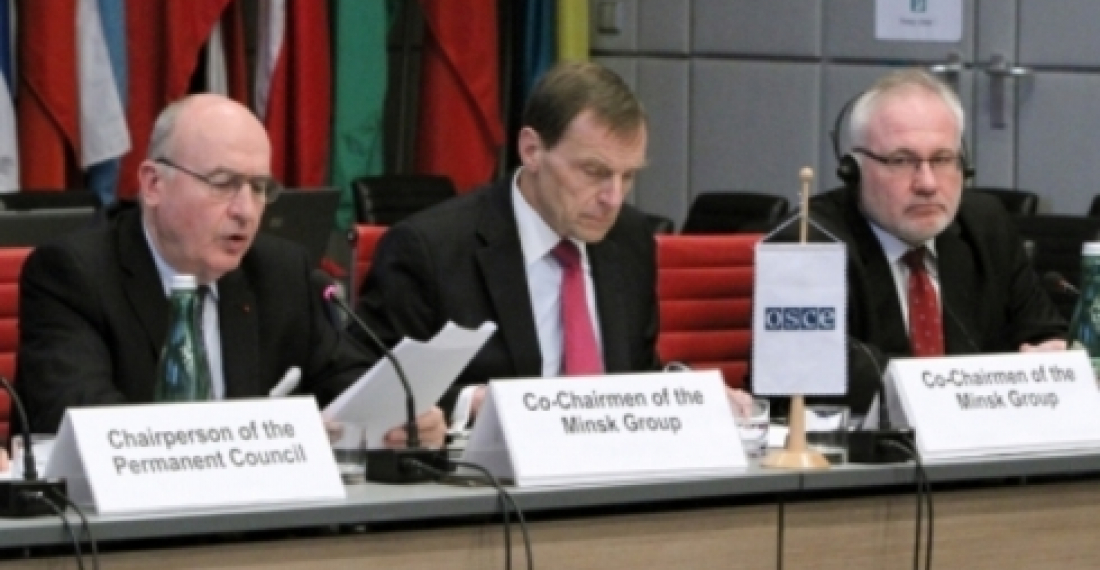The Co-Chairs of the OSCE Minsk Group (Ambassadors Bernard Fassier of France, Robert Bradtke of the United States, and Igor Popov of the Russian Federation) and Ambassador Andrzej Kasprzyk (Personal Representative of the OSCE Chairperson-in-Office) presented their annual report of activities on November 3 to the Permanent Council of the OSCE, in light of the upcoming OSCE Ministerial Council in Vilnius.
In summarizing their efforts to mediate a lasting and peaceful settlement of the Nagorno-Karabakh conflict, the Co-Chairs noted that in the past year they visited the region eight times and held fourteen separate meetings in various locations with Azerbaijani President Aliyev and Armenian President Sargsian. The Co-Chairs also crossed the Line of Contact by foot four times in the past fourteen months, demonstrating that the Line is not a permanent barrier between peoples of the region and that military coordination in implementing the ceasefire is possible when all the sides are willing.
Highlighting the continued engagement of their three governments, including at the highest level, the Co-Chairs also reiterated that there is no military solution and that political will by the sides is essential for them to make the difficult decisions required to move beyond the unacceptable status quo and achieve peace.
The Co-Chairs also described additional efforts intended to improve the atmosphere for negotiations, strengthen implementation of the ceasefire, and promote understanding among peoples of the region. The Co-Chairs plan to travel to the region again at the end of this month to further develop proposals on these issues and to discuss continuation of the negotiation process.
source: OSCE
photo: The OSCE Minsk Group co-Chair at the OSCE Permanent Council in Vienna on 3 November (Picture courtesy of the OSCE)







